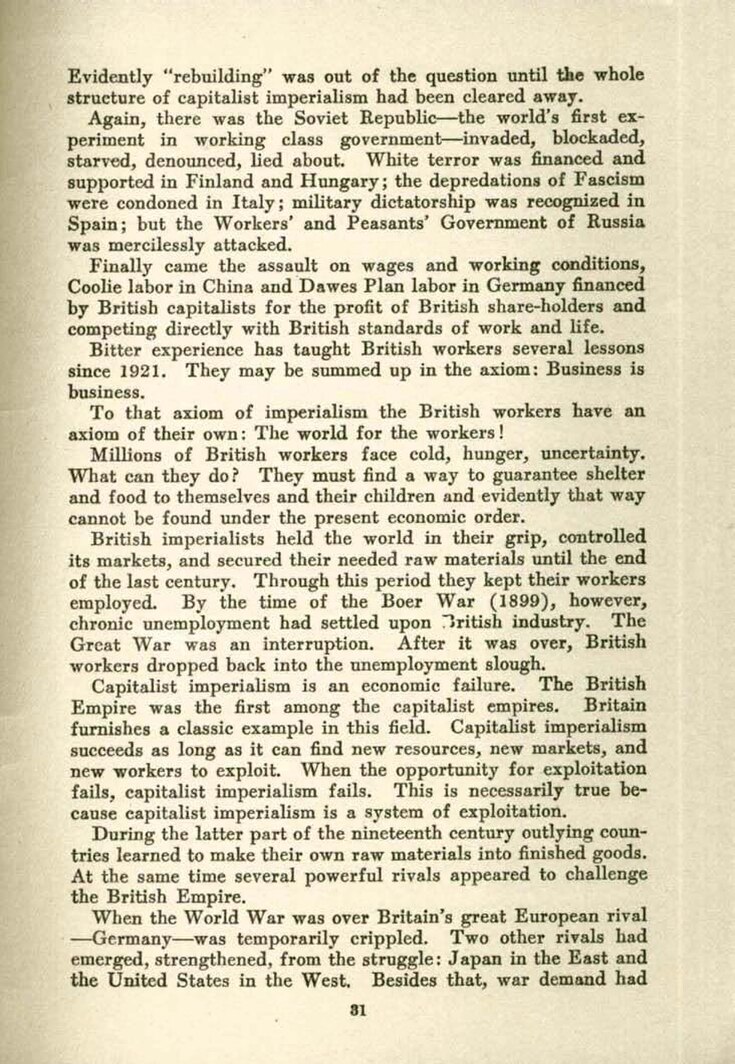Evidently “rebuilding” was out of the question until the whole structure of capitalist imperialism had been cleared away.
Again, there was the Soviet Republic—the world's first experiment in working class government—invaded, blockaded, starved, denounced, lied about. White terror was financed and supported in Finland and Hungary; the depredations of Fascism were condoned in Italy; military dictatorship was recognized in Spain; but the Workers' and Peasants' Government of Russia was mercilessly attacked.
Finally came the assault on wages and working conditions, Coolie labor in China and Dawes Plan labor in Germany financed by British capitalists for the profit of British share-holders and competing directly with British standards of work and life.
Bitter experience has taught British workers several lessons since 1921. They may be summed up in the axiom: Business is business.
To that axiom of imperialism the British workers have an axiom of their own: The world for the workers!
Millions of British workers face cold, hunger, uncertainty. What can they do? They must find a way to guarantee shelter and food to themselves and their children and evidently that way cannot be found under the present economic order.
British imperialists held the world in their grip, controlled its markets, and secured their needed raw materials until the end of the last century. Through this period they kept their workers employed. By the time of the Boer War (1899), however, chronic unemployment had settled upon British industry. The Great War was an interruption. After it was over, British workers dropped back into the unemployment slough.
Capitalist imperialism is an economic failure. The British Empire was the first among the capitalist empires. Britain furnishes a classic example in this field. Capitalist imperialism succeeds as long as it can find new resources, new markets, and new workers to exploit. When the opportunity for exploitation fails, capitalist imperialism fails. This is necessarily true because capitalist imperialism is a system of exploitation.
During the latter part of the nineteenth century outlying countries learned to make their own raw materials into finished goods. At the same time several powerful rivals appeared to challenge the British Empire.
When the World War was over Britain's great European rival—Germany—was temporarily crippled. Two other rivals had emerged, strengthened, from the struggle: Japan in the East and the United States in the West. Besides that, war demand had
31
